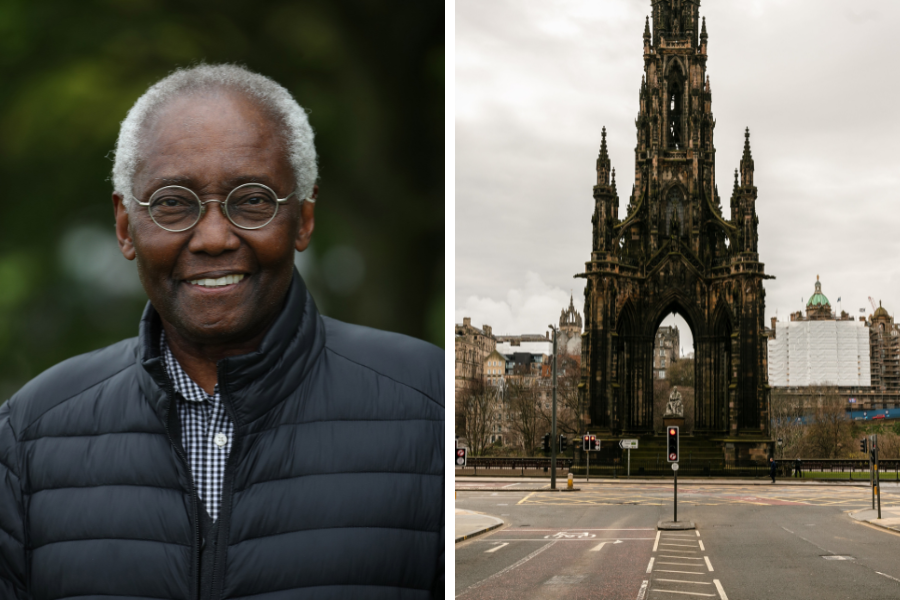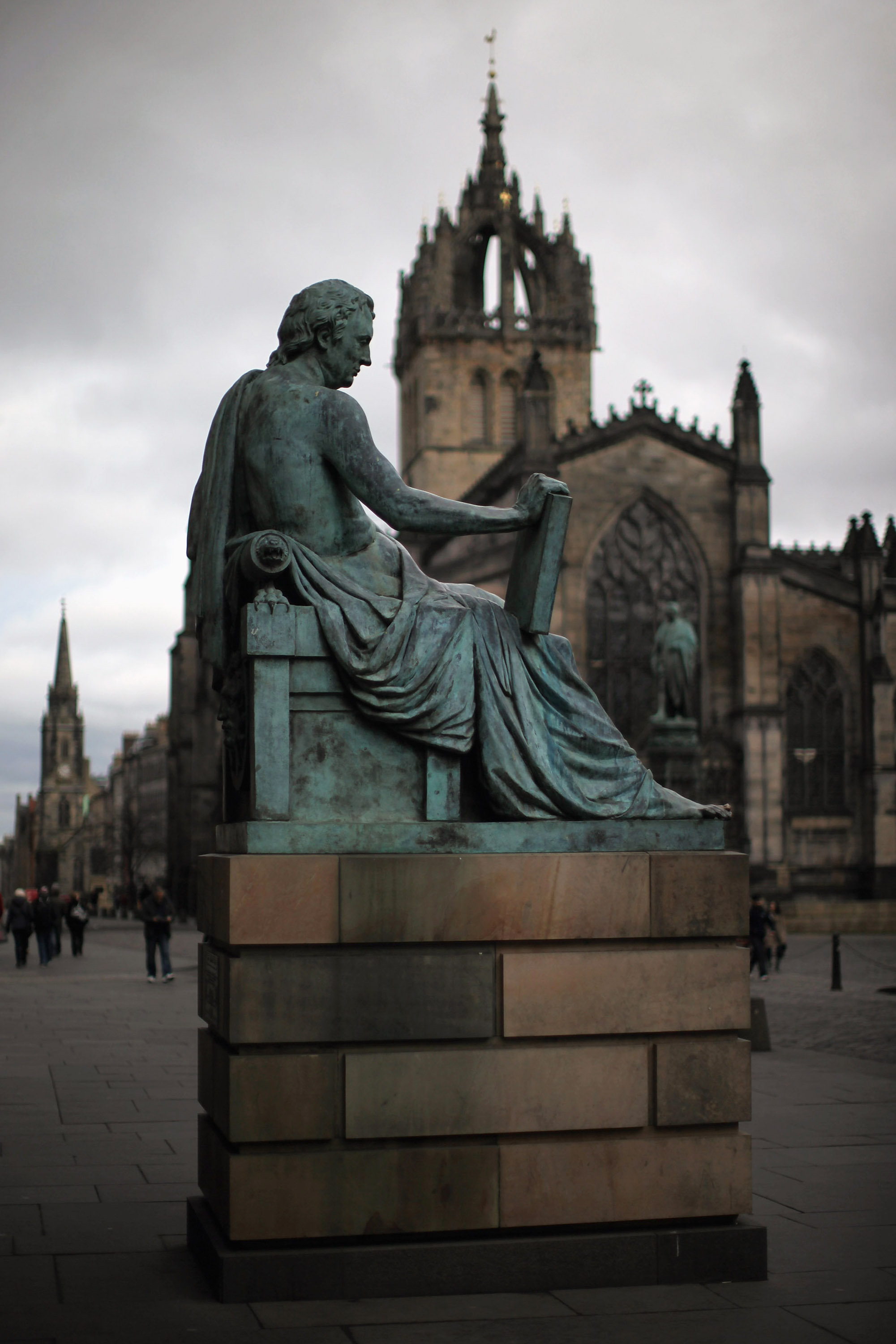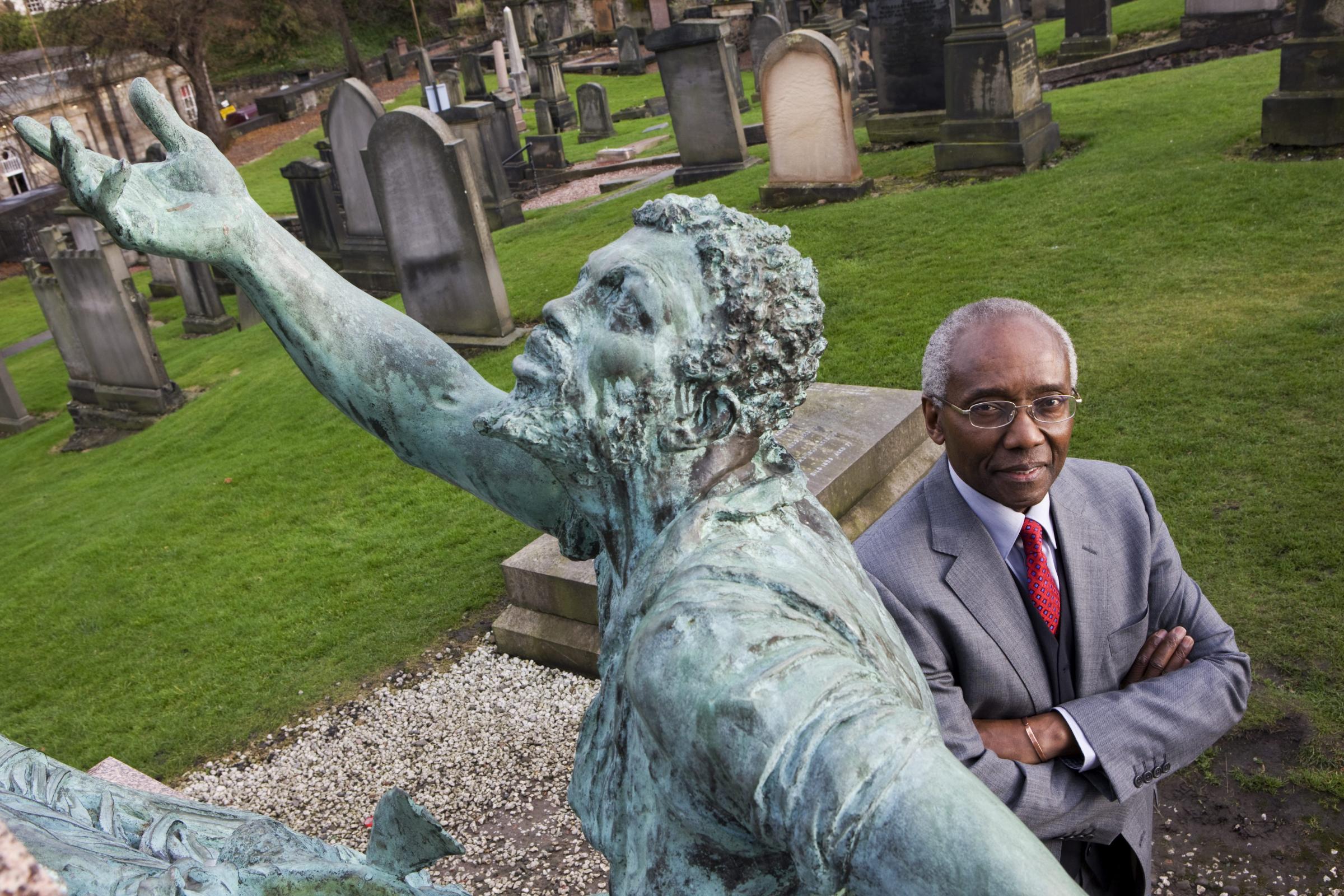
EDINBURGH will not rename streets or remove statues linked to the slave trade as part of a package of measures agreed to shine a light on the “dark aspects” of the city’s connections with the British Empire.
A committee of councillors agreed to implement the recommendations of a review, which included recommending the city apologises to those who suffered from slavery, led by Geoff Palmer, professor emeritus of life sciences at Heriot-Watt University.
The review said it was time to value the “best of our past” while recognising the “pain and suffering” that funded the development of Edinburgh’s elegant New Town or the wealth generated by the Empire which improved lives in the UK, rather than for colonised people.
Hume won't fall
Palmer has previously opposed taking down statues linked to slavery – such as happened to the monument to slaver and merchant Edward Colston in Bristol – advocating instead for them to be “reinterpreted”.

It means that statues in the city of Christian missionary David Livingstone and eminent Scottish philosopher David Hume will be safe from removal, despite press reports last year claiming they could face the axe.
Hume's legacy has been reappraised by some modern scholars who highlighted some of his writings which showed he thought black people "naturally inferior to the whites", culminating in the rebranding of an Edinburgh University name for him.
The review recommended street names and statues associated with colonialism – whether named or erected from people who owned slaves or profited directly from the trade in humans – be kept and “re-presented in accordance with a new, dedicated interpretation strategy which explains the nature and consequences of that involvement”.
This strategy is yet to be developed, but universities and research bodies must be involved in the process of doing so, the review recommended.
Members of Edinburgh’s Policy and Sustainability Committee accepted the 10 recommendations at a meeting on Tuesday.
Historical researchers should “fund, develop and publish studies” into lesser-known parts of Edinburgh’s links to the slave trade and the Empire using the interpretation strategy once it has been created.
Part of the review details what the interpretation strategy should include, saying it should prioritise “fresh perspectives, new understanding and fuller accounts of the legacy and the people associated with” slavery and colonialism, while preserving the “unique” fabric of Edinburgh’s history.
Apology and remembrance
A full public apology should also be offered by the council to those who suffered because of slavery and colonialism and for Edinburgh’s role in “sustaining” the slave trade, the report has also recommended.

The city should also observe the annual International Day for the Remembrance of the Slave Trade and its Abolition on August 23, the review said.
Festivals Edinburgh will also be invited to see how it could promote shows and events which further explore the city’s relationship with the slave trade, as the date falls during the festival season.
Jamaica-born Palmer – who became the first black professor in Scotland in 1989 – said in his foreword to the review: “Although it has been said in some quarters that we should forget the past, our slavery and colonialism exploited many for the financial gain of the few, and had other unacceptable consequences such as racism which we can change for the better using education.”
'Not about erasing history'
The report said a review into how slavery and the Empire shaped the Edinburgh of today was needed because few young people are taught in school about the British Empire and Scotland’s role in colonialism.
It added: “For many people in Edinburgh, this history has largely been hidden. Young people have not consistently been taught in school about how Scotland and its capital city were active in the enslavement of Africans. Yet many more died on the slave ships than at Bannockburn and Culloden.”

The report said its aims were not “erasing history” but instead to present a “fuller picture that enables us all to better understand who we are, and how this history influenced the development of Edinburgh itself”.
It is expected some short-term steps recommended by the review, including an apology, can be implemented within the existing budgets in 2022/23.
Actions such as initiating friendship agreements with cities in countries most impacted by the city’s historic involvement with slavery and colonialism, will also be taken.
The cost of the review by Palmer was £18,500 to date after the academic was commissioned by the council to chair the review following the Black Lives Matter protests in 2020.
He said: “Everybody has got to be included or it doesn’t make sense and that’s what we’re hoping for the curriculum development, is that it is our history.
“That is how I think it should be taught and that’s how it will change attitudes because you cannot explain racism in any other way.
“By talking about the impact of the delegation of black people and then justifying the enslavement, people will understand that.”
Gillian Findlay, the council’s curatorial and engagement manager in culture and wellbeing, said the report’s impact had already been felt by the nature of the public responses, particularly from black and ethnic minority (BAME) groups.
She said: “We have been delighted, and I think the review group has been delighted, with the wholehearted response and participation that we’ve seen from (black and ethnic minority) groups of the community we have managed to reach.”
And she said those in the BAME communities are keen to see how the recommendations impact policy, education and employment.







